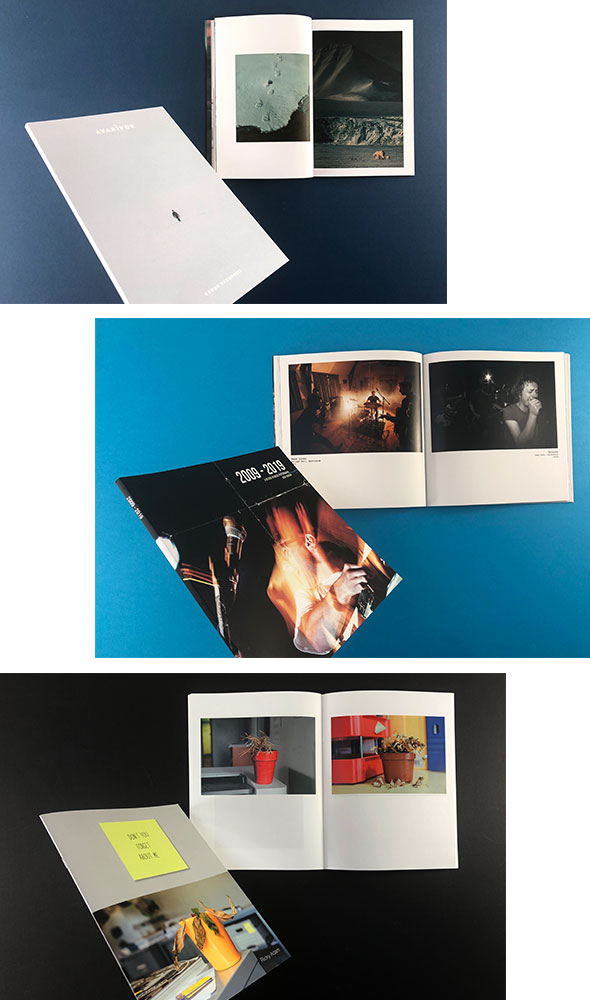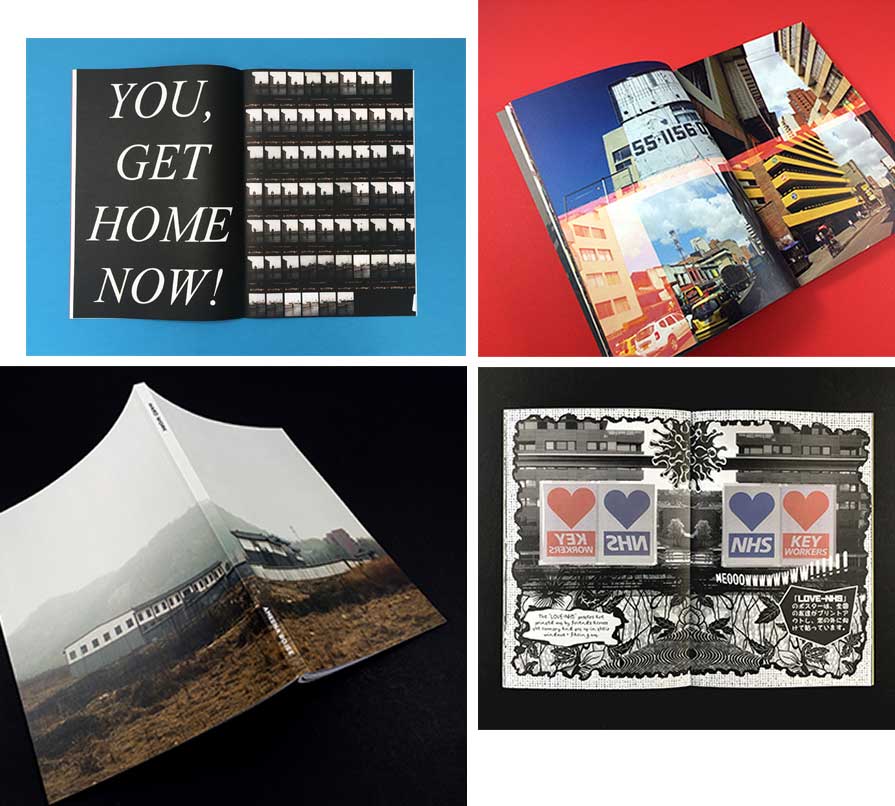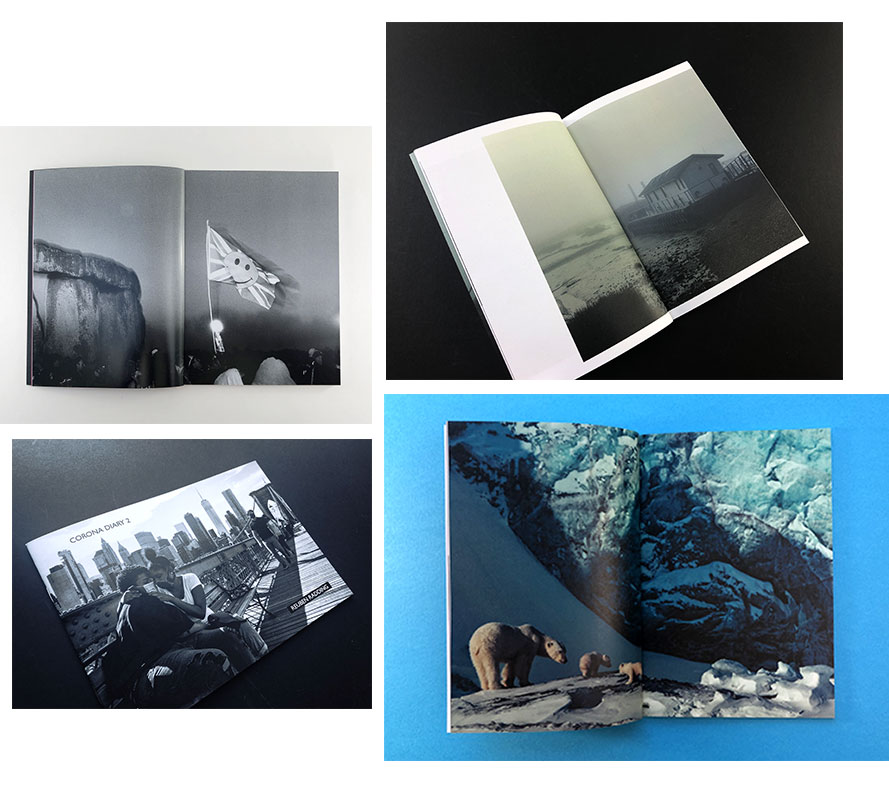Thanks for stopping by and welcome to Ex Why Zed. Congratulations on getting your PDF ready for photobook printing. We are printers of ultra-stylish, contemporary photography books. Every week we print beautifully designed books that receive rave reviews from peers and set the benchmark for putting ink on paper.
We have extensive experience since 2006 so sit back and relax, we’re here to guide you through the process.
At the heart of our easy workflow at Ex Why Zed is the Print Journey. Each of the 5 steps has its own hub where you can enjoy comprehensive guides, illustrated articles, captivating videos and insightful blog posts. These resources empower you to make well-informed decisions about design and styling, propelling your project from an initial idea to a winning Photobook.
We have curated a comprehensive video to methodically guide you through the entire process. It is titled as a Zine Printing Guide but all of the decisions, processes and production solutions apply to photography book printing too. In this super informative video, we detail the options available for size, paper and binding. We showcase photography books and dissect a series of winning combinations to give you inspiration on what can be achieved with your new project.
It won’t be long now before you experience that super exciting moment when a glorious stack of boxes arrives and you unpack the first book.
We have been doing this a while now and have seen a lot of impressive publications come off our presses. To give you a head start with your Photobook printing, here are three print specifications which work well (and photos of them, see right). Each has its own characteristics which have proven to be winning combinations from a production perspective, cost per unit and most importantly, have reader appeal.
If any of our showcase options would work for your project, take a note of the spec and jump on our printed project builder to receive your bespoke quotation. Or ping us an email on hello@exwhyzed.fixed-staging.co.uk if that is easier.
Showcase 1 – a professional looking option at a good unit price and ideal for a self-promo portfolio:
A5 Perfect Bound Books
4pp Cover onto 300gsm Uncoated
Matt Lamination to outer
60pp Text onto 115gsm Uncoated
Four colour print throughout
As a guide, you could print 100 copies of this spec for £3.10 a copy or if you print 500 it will only be £2.10 per photobook.
Showcase 2 – an impressive square format for your photography annual or anthology, ideal for a mix of portrait and landscape images:
210x210mm Perfect Bound Books
4pp Cover onto 300gsm Uncoated
Matt Lamination to outer
76pp Text onto 170gsm Silk
Four colour print throughout.
Showcase 3 – a stapled photo book handy for a smaller photo set and easy for the reader to open the double-page spreads completely flat:
290x190mm Wire Stitched Booklet
4pp Cover onto 300gsm Silk
Matt Lamination to outer
40pp Text onto 130gsm Silk
Four colour print throughout
As a guide, you could print 100 copies of this for £3.60 for each copy.
Tweaks you could consider to the print specs:
• Switch the finish from uncoated to silk to make the images sharper and brighter.
• Reducing the cover to 250gsm or 200gsm makes it easier to open.
• Increasing the cover to 350gsm makes it more substantial and harder wearing.
• Switching to gloss lamination for a shiny aesthetic.
• Increase the size to A4 for more surface area for your images.
• Decrease the size to A5 or A6 making it pocket size and also be cheaper to print.
• Increase the weight of the inside pages to 170gsm making it more substantial and prestigious for the reader.
• Pick out some content on the cover to Spot UV varnish, foil or emboss (this is an additional £280).


There are almost infinite possibilities on size, finishing and papers so we offer expert knowledge and advice before your job goes to press, a competitive photobook print quote to make the most of your budget and a high quality standard of printing delivered nationally throughout the UK and worldwide too.
Jump on our Styling Hub for ideas on what can be achieved.
Size, number of pages and quantity are the factors that have the biggest impact on your price. Increasing or reducing these can stretch your budget.
You can print one copy if that is all you need, or up to a few thousand copies. Choose from A6 to A3 in portrait orientation and all bespoke sizes in between or from A5 to A4 in landscape orientation. You could even challenge convention and print your booklet at a custom size that suits the photography in your project.
Staple Binding. Also known as wire stitching and saddle stitching. An advantage of a stapled booklet is that all the pages can be pressed completely flat which means the full width of the double-page spread is visible.
Perfect Binding. The inside pages of your book are glued with a square spine. This solution creates a more substantial book aesthetic.
Case Binding. You will know this as a ‘hardback book’ and the process produces a formidable coffee table style book to show off your photography.
For some visual inspiration, take 5 minutes to watch our video on choosing softback or hardback for photobook printing.
The RGB vs CMYK Puzzle
For the closest reproduction to screen, we recommend printing onto silk or gloss for a sharp, crisp finish rather than uncoated (which tends to soak up the ink and flattens contrast). The most common issue we have with photobooks is that your images don’t look the same when printed as they appear on screen. We will be honest, from the outset…they never will and there has to be an understanding and appreciation of this fact before the job goes ahead.
We’ll be honest, a specialist fine art printer could get a closer reproduction to the screen but they will be many multiples more expensive than our quote for Indigo digital or litho printing.
If you are looking to print a book featuring images that appear black & white or monochrome on screen but are actually in full colour then our battle of printing black and white images video is crucial to watch, absorb and act on.
Put simply, it can be extremely hard to effectively print black-and-white images in HP Indigo digital or by Litho printing methods. Thankfully, this isn’t our first rodeo so in the video below we take a deep dive into how to get around this and why it is so difficult. This is an issue that you will encounter at every printer, but at Ex Why Zed we are keen to point it out and help before going ahead.

Spend a few minutes looking through our portfolio of previous Photobooks.

We worked with the ‘social media channel for the cool people’, Vero, to produce a photography book capturing the best examples of black and white photography from their #momo hashtag (Monochrome Monday). The resulting publication oozes class with an embossed Colorplan front cover housing 104 inside pages packed with exceptional photography.
As GQ Magazine summarised, this is an “ultra-stylish bound book” and “your new coffee table essential”.
https://www.gq-magazine.co.uk/culture/article/vero-monochrome-mondays-book
The print spec is:
260x196mm Perfect Bound Books.
4pp Cover onto 270gsm GF Smith Colorplan Ebony Black plus embossed logo.
White ink printing to spine.
104pp Text onto 150gsm House Uncoated.

We have done our best to give you a huge wealth of information on this page and in our guides but if here are some frequently asked questions to help you get your work into print.
If you haven’t already seen it, do also watch our feature length Definitive Zine Printing Guide and our Hardback Book guide if that is the binding method you havea chosen or watch our FAQs video for smaller, more manageable pointers.
Size, number of pages and quantity are the factors that have the biggest impact on your price. Increasing or reducing these can stretch your budget.
We like to interact with our customers, find out about their projects and have a bit of dialogue rather than hide behind a massive, confusing spreadsheet on a website.
We provide a bespoke quote for each and every job because your project is bespoke and unique.
Don’t get us wrong, our process is quick and efficient but we like to add extra value by starting a conversation with you first. Remember conversations? Yep, they are what happened before your phone was glued to your head! 🙂
The largest portrait size we can print is an impressive A3 (420mm high x 297mm wide). Our maximum square size is 297x297mm. The maximum landscape size is 210mm high x 297mm wide.
For cost-effective sizes keep your catalogue within A4 portrait, A5 landscape or 210x210mm square – these are the cheapest sizes to print but do choose the size that best fits your publication.
There are a number of options for producing a one off test copy of your book. The best solution depends on the print spec of your final print run. Assuming you are going for under 500 copies, in which case we will be digitally printing then final books, then we can print a proof that is close in repro and production values. If you are printing a longer print run of 500 copies or more then it is likely we will be litho printing your books to achieve the best possible quality. The digital proof will be a guide on the layout and paper but won’t match the final books.
We will aim to deliver in 5 working days after receiving print-ready artwork. The amount of time depends on the prit spec you have chosen though. If you are unsure on whether the file has been set up correctly then do allow an extra day or two for fine-tuning the artwork.
The perfect bound method of binding will give your publication a square spine and professional looking finish. For further advice follow our perfect binding set up guides.
The absolute minimum number of pages we can perfect bind is 32: a 4 page cover and 28 inside pages onto 170gsm. This will give you a skinny 3mm spine.
Wire stitching is a little bit of print jargon for ‘stapling’. As an example, if you have an A5 booklet then we print it onto A4 sheets, fold them in and put staples along the left-hand edge to bind the sheet together. In some quarters, this is also known as ‘saddle stitching’. Let’s stick with stapling though if that’s easier 🙂
Yes, hardback photobooks are a superbly impressive addition to any coffee table. They do cost more for us to produce but then in turn, you can sell them for a higher cover price.
Check out our video guide on hardback books https://youtu.be/QnrOakRMBXg
Do also look through our portfolio for examples of previous publications we have printed: https://www.exwhyzed.fixed-staging.co.uk/portfolio-category/hardback-case-bound-books/
FOGRA39 is our prefered colour profile.
You tend to lose 2-3mm on the spine side of each page so moving any important information a good 6-8mm away from the page edge will make it actually readable without people having to force the pages flat.
Additionally, 8mm of the first and last text pages are glued to the front cover to make a hinge so best to allow 10-12mm of space on the spine side to avoid anything being completely hidden by the cover hinge.
With images that cross the spread you can cheat a little by splitting the image in two then moving the left hand half left by 2-3mm and the right hand half right by the same amount.
The three basic finishes are silk, gloss or uncoated. Each have their own pros and cons. For sharp, crips images choose silk or gloss. For a more tactile, firbrous finish but more muted images choose uncoated.
Our video guide on paper choices is a good place to start when choosing what you would like for your book https://youtu.be/JTwAvIbm6pU
#photography #photooftheday #photo #graphicdesign #photographer #travel #picoftheday #photoshoot #japanphotography #streetphotography #travelphotography #landscape #lensculture #lensculturestreets #everybodystreet #wearethestreets #streetizm #streetphotographer #eyephotomagazine #streetziers #myfeatureshoot #streetphotographers #streetphotographerscommunity #printing #colorplan #gfsmith #creativeprintcompany #selfpublishing #photobook #exwhyzedprint
Yes, ‘text’ pages is our common term for the inside pages of your publication. They can be filled with illustrations, photography, full colour artwork…or just text if it’s a poetry book.
For the purposes of our quoting, we call a page one side of content. So, a sheet of paper has two pages – a front and a back. If you ask for a quote for 40 inside pages, that will be 40 pages of content, 40 pages in your artwork file / pdf and in the book 20 leaves printed on both sides.
We like to interact with our customers, find out about their projects and have a bit of dialogue rather than hide behind a massive, confusing spreadsheet on a website.
We provide a bespoke quote for each and every job because your project is bespoke and unique.
Don’t get us wrong, our process is quick and efficient but we like to add extra value by starting a conversation with you first. Remember conversations? Yep, they are what happened before your phone was glued to your head! 🙂
For this reason we don’t list all our prices online but get in touch either in email or through our quote form and we will give you a bespoke quote.
No. Unfortunately what is seen on an RGB, backlit screen is never going to be the same as it appears on paper in CMYK. It’s just impossible to achieve that and no printer could. You will have to allow for some difference in the colours between the two mediums but having something tangible in your hands and seeing the images on paper gives the publication a charm that just sending out a pdf wont do.